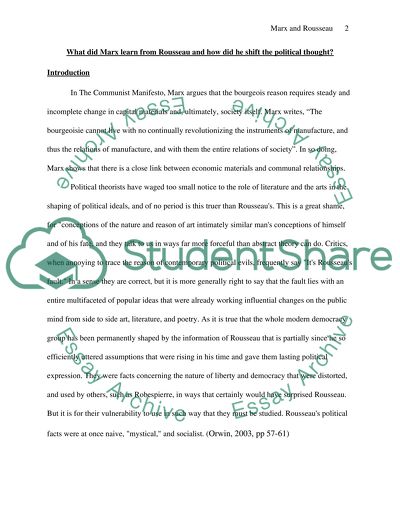Cite this document
(“Political Thoughts of Marx and Rousseau Book Report/Review”, n.d.)
Political Thoughts of Marx and Rousseau Book Report/Review. Retrieved from https://studentshare.org/philosophy/1508435-political-thoughts-of-marx-and-rousseau
Political Thoughts of Marx and Rousseau Book Report/Review. Retrieved from https://studentshare.org/philosophy/1508435-political-thoughts-of-marx-and-rousseau
(Political Thoughts of Marx and Rousseau Book Report/Review)
Political Thoughts of Marx and Rousseau Book Report/Review. https://studentshare.org/philosophy/1508435-political-thoughts-of-marx-and-rousseau.
Political Thoughts of Marx and Rousseau Book Report/Review. https://studentshare.org/philosophy/1508435-political-thoughts-of-marx-and-rousseau.
“Political Thoughts of Marx and Rousseau Book Report/Review”, n.d. https://studentshare.org/philosophy/1508435-political-thoughts-of-marx-and-rousseau.


